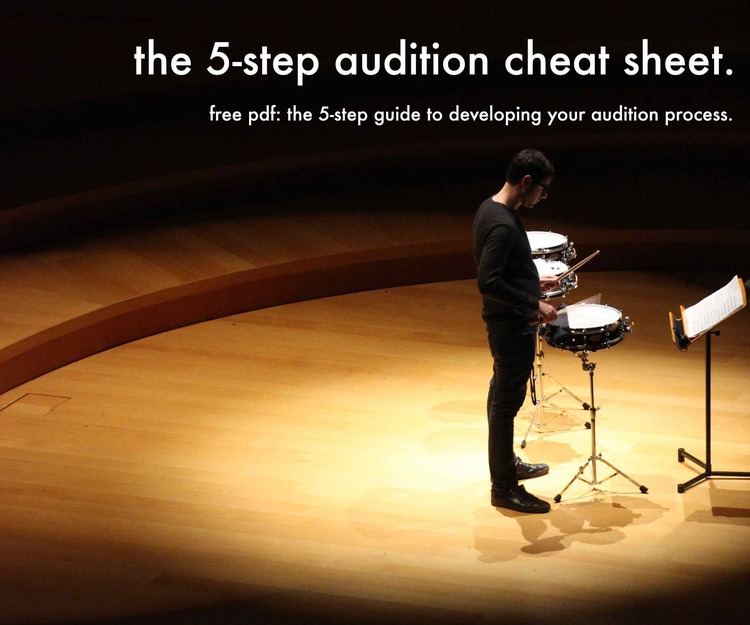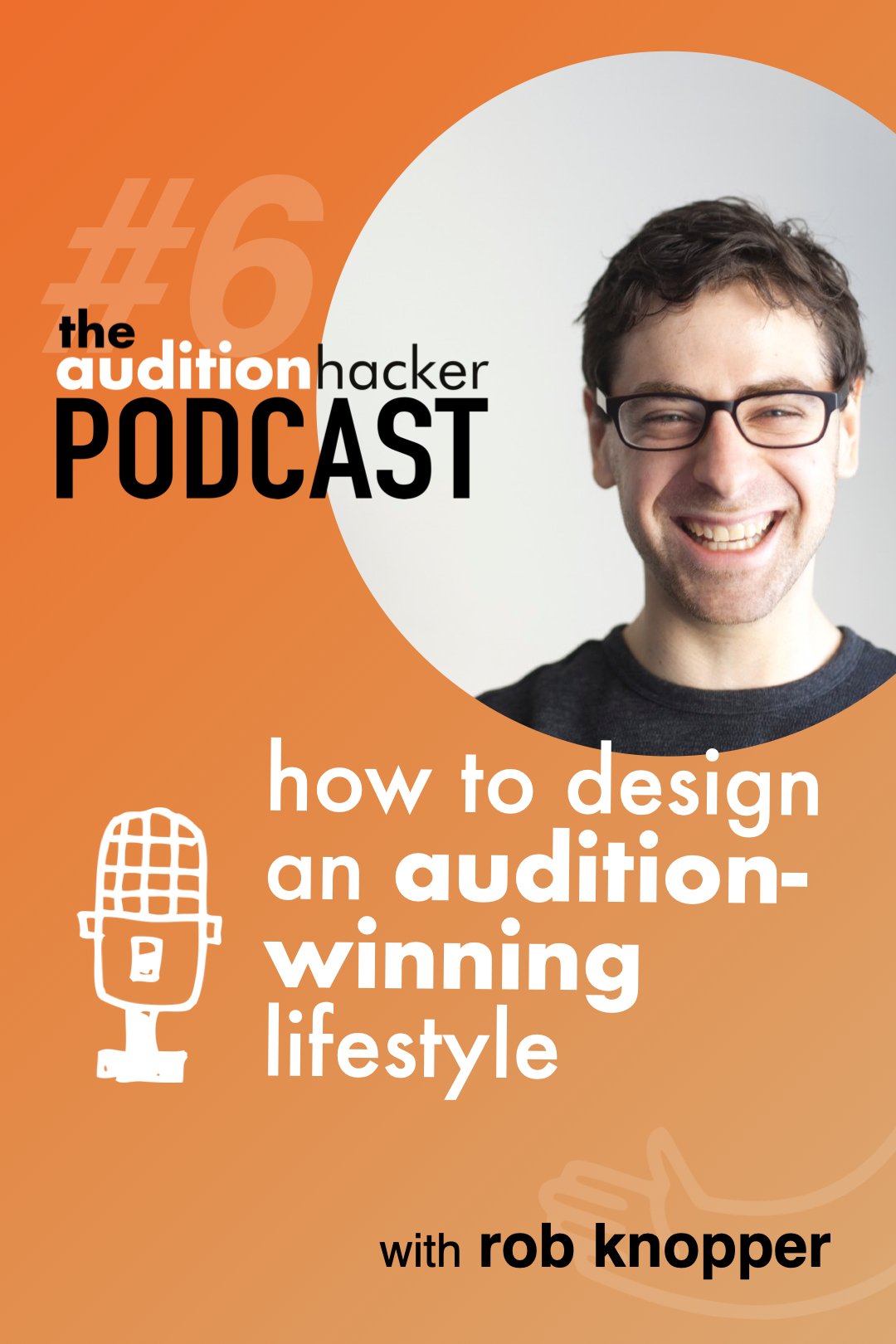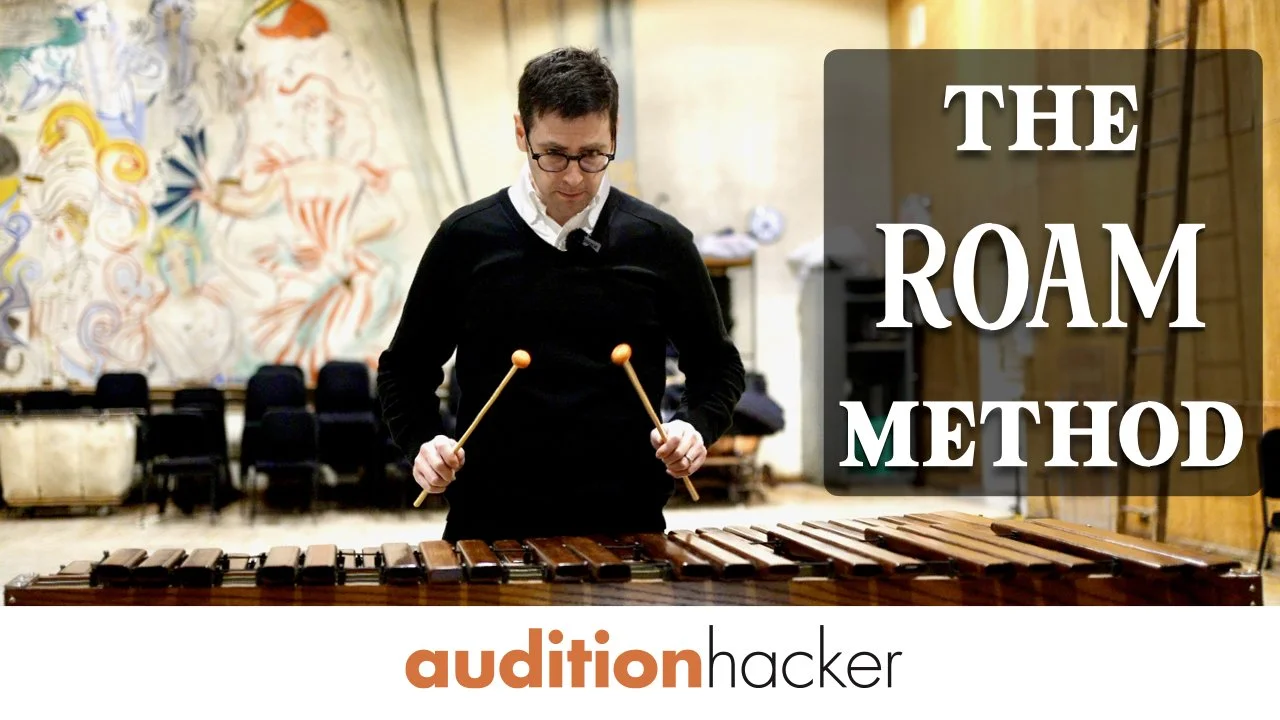note: the content of this blog has been edited and is only a personal opinion of the author.
ok, so i’ve listened to auditions for years. in college we sat in on each other’s mock auditions during excerpt class. i’ve listened to auditions for youth orchestras, as a guest juror at different schools, and in professional orchestras.
auditions can feel long and boring if you’re sitting through a ton of people playing the same excerpts over and over. but while you’re listening you have an important job to do.
when i listen to auditions, instead of zoning out and drooling all over myself, i also like to listen intently and see what i can learn from the experience.
over the years, i‘ve come to some fascinating conclusions about auditions.
in last week’s blog, i talked about what the experience is actually like as an audition juror, trying to listen to each person objectively and convert a complex musical performance into a binary decision of yes or no. i talked about what goes through my brain as it’s happening and how i make my vote.
today’s blog is a response to that. it’s about what makes people stand out and advance.
want a head start on audition preparation?
here's my 5-step guide to constructing your preparation process and optimizing it for maximum results.
the audition rubric
ok, so i have this thing called the audition rubric. i’ve talked about it in training videos before. it’s what you’re graded on.
for example. if you’re writing a paper for class, the teacher grades you on a rubric: spelling, grammar, correct punctuation, sentence structure, whatever. it’s a list of important elements, or criteria, that they’re looking out for. they read over your essay and analyze each of those elements. it’s the same with auditions.
when you’re sitting and listening to an audition or performance, you have an audition rubric going on in your brain. you’re listening to the music in a whole bunch of different ways: rhythm, dynamics, pitch, tone, character, phrasing, etc. you may be aware of all of them or you might just take it all in and subconsciously notice all that junk.
as a musician, you also have that same rubric when you’re practicing. if you record yourself and listen back, you’re hopefully addressing many or all of those elements.
my personal objective using my rubric is to perform an interpretation of each excerpt that presents each of the musical elements on the rubric at as high a level as i possibly can. as i’m doing that, if i make an adjustment (like making a note a little bit louder), that often is enough to knock another element out of place. the rhythm will be off, or something.
the goal here is to continually massage all those elements into their exact place in order to deliver everything perfectly. and by “perfectly,” i don’t mean mathematically. i mean a perfect representation of my ideal musical vision. more about “perfection” later.
from my experience listening to auditions, i’ve found that those who advance have high levels of each element on the audition rubric.
you hear about auditions being full of extremely high level players. and that’s true - many auditions are filled with plenty of players who have amazing skills and many individual strengths.
for instance, somebody might come in and play with really great rhythm and character. someone might come in and play with the most beautiful vibrato and phrasing and tone.
let me be clear: you don’t have to be perfect to advance. i’ve never heard anybody play at a 100% perfect presentation of all the musical elements for any excerpt…ever. the best i’ve heard is players who have a 90 – 95% presentation of all of the musical elements on the rubric. and that’s really all it takes.
think about that: doesn’t it surprise you that all it takes to stand out at an audition is to actually address each of those elements of the rubric?
that’s was the big difference that i hear when people have audition success. those who advance let nothing slide. they see to it that every single musical element, every single note, is performed as intended.
now let's talk about how someone stands out at an audition.
when i hear someone truly stand out at an audition, they are so clear and so obvious with their musical decisions that everyone listening knows exactly what they’re doing. it’s fully apparent, fully shown, and fully clear. everything.
my teacher in college, joe pereira, taught me how to do this in a really interesting way.
joe said that while you’re playing, you should pretend that the listener has a piece of blank sheet music in front of them and is transcribing your performance while you play it. you need to make sure that they know, beyond a shadow of a doubt, exactly what you’re playing. not because they’re looking at the music, not because they’re looking at the part you’ve written all over, but because what you’re doing is so clear that it could be nothing else. the only possible thing they would write down as they transcribe it is exactly what’s written on the real music.
here’s an example: say you’re trying to play a group of running 8th notes, and one note has an accent over it. if you play that accent too subtly, your intent might be misinterpreted. what you think happened was that you played a soft accent in a musical way so that it wasn’t too jarring, but in reality, what the listener hears (especially in a bigger room instead of the dinky little practice rooms we’re used to) is uncertainty. was that really an accent? was that just a musical emphasis? was it an accident?
if you play the accent too loudly, on the other hand, then it sounds like it’s not just an accent but it jumped 3 dynamics. or that it was a big sforzando or something. on the spectrum from not enough accent to too much, there’s a perfect place right in the middle that it could only be an accent, and nothing else.
a winner shows contrast between accents and non-accents. the accents would be clearly accents and nothing else. it would be the perfect demonstration on how an accent should sound, like the person is giving a clinic on accents.
when there’s a rubato, it’s a measured, clear and natural-sounding rubato. it’s not subtle…in fact, it might be even a little more rubato than the average person would use. it’s a distinct contrast from what came before and what would come after, and a perfect demonstration of what rubato should be.
when you hear someone play like that, it sounds like they’re your guide while you’re listening. they lead you through their excerpts, spoon-feeding it to you, and saying exactly what they mean to say.
does your performance have to be perfect? no.
let me address perfection: when i talk about trying to achieve perfection on the elements in the rubric, i’m not talking about trying to achieve mathematical perfection. i’m not talking about the notes sounding like a machine, having been typed into finale or sibelius and mindlessly regurgitated.
first you develop your musical vision. you know exactly how you want something to sound when you’ve prepared it. yes, of course, that might include some rhythmic pushing and pulling, or some extra dynamic shifts. it’s not mathematical, but it’s how you want it to go. perfection is when you achieve that. top players achieve 90-95% perfection in each of the musical elements based on their intended musical vision.
what does this mean for you?
the conclusion that you should draw from this isn’t that you need to achieve some unreachable level of perfection that only a few people can attain. i find the opposite to be true.
my conclusion is that even in big auditions, there’s an opening for people who are diligent enough to work out each of the musical elements without letting anything slide. and in the end, the competition isn’t among the hundreds of people who apply, it is among the few people who achieve their musical vision, and who present musicality with utter clarity.
learn to dominate your audition preparation.
here's my 5-step guide to constructing your preparation process and optimizing it for maximum results.















in 2019, a cellist named maria reached out to me about her audition struggles. on paper, she was the “worst audition candidate ever” (her words). she had 2 small children, a full-time teaching job, and hadn’t taken an audition in 4 years.